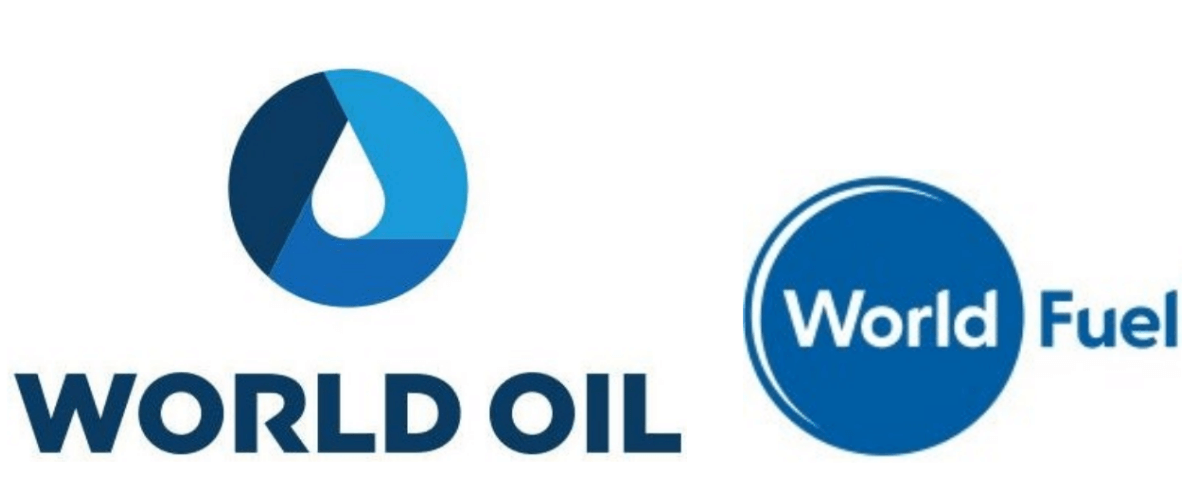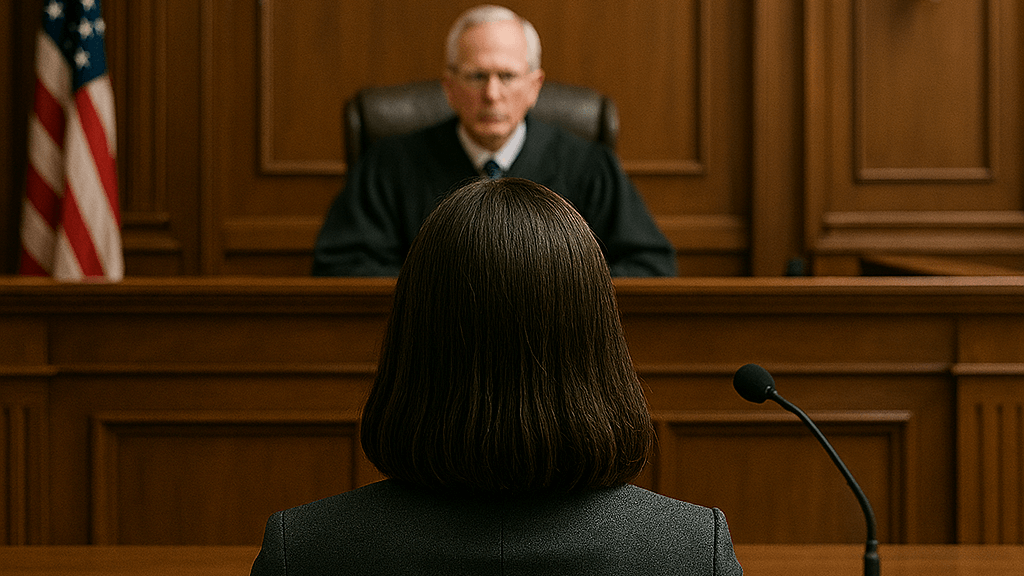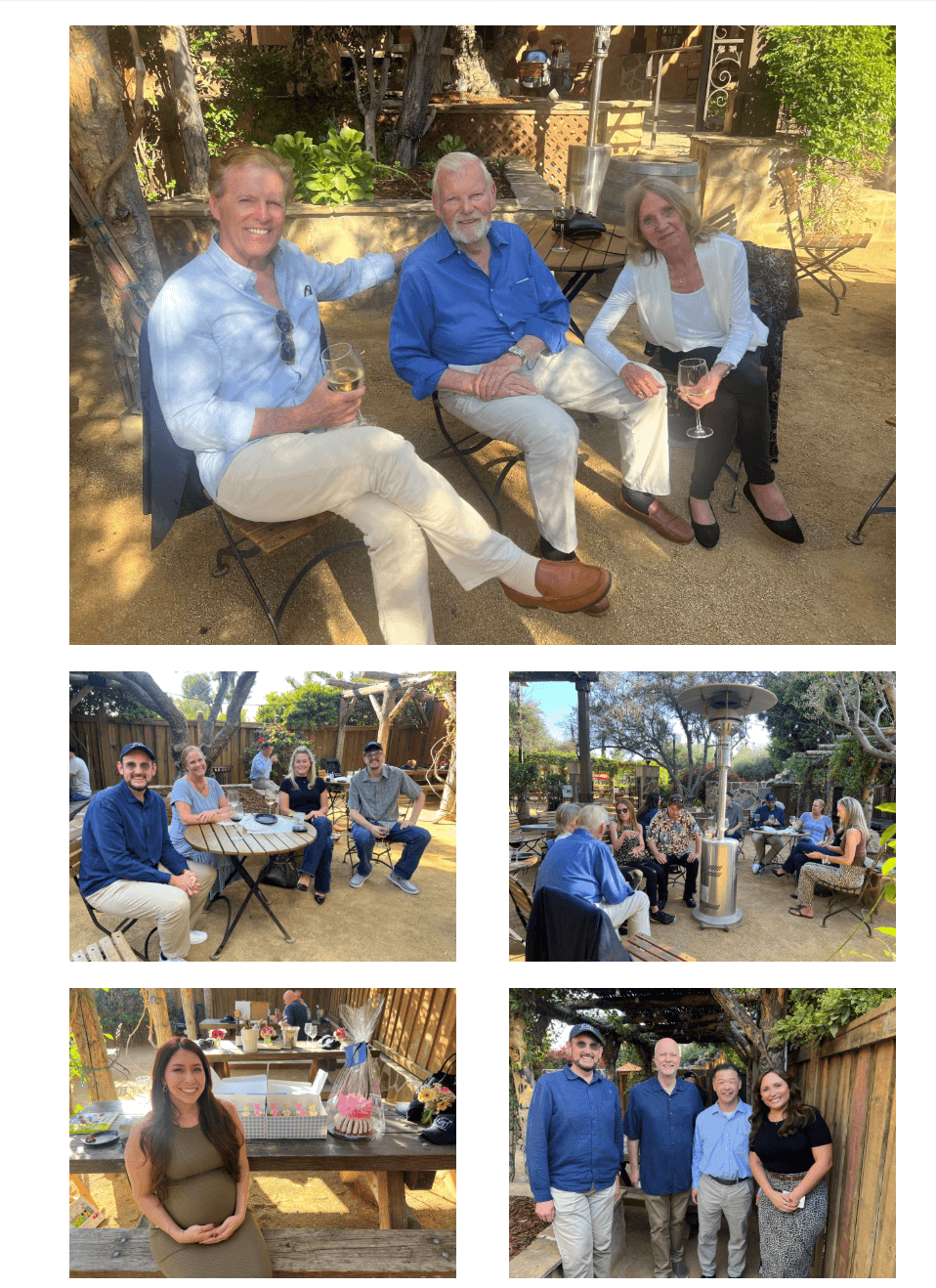C & T Newsletters
September 2025
World Oil Sues World Kinect Over Logo and Trademark Dispute
Takeaway: World Oil Corp. has sued World Kinect Corp. over its new “World Fuel” branding, illustrating the risks companies face when rebrands edge too close to established trademarks.

World Oil Corp., a California petroleum company, has sued Florida-based World Kinect Corp. in Los Angeles federal court, claiming the rival’s new logo and branding are too close to its own. World Oil says it has been using its “World” trademarks since the late 1940s. World Oil alleges that World Kinect’s updated “World Fuel” logo, which compared to World Kinect’s earlier trademarks, has moved words around and eliminated wording that differentiated the marks, feature similar colors and design, and the words “oil” and “fuel” are virtually synonymous, which creates the potential for consumer confusion.
The complaint also points out that World Kinect, formerly called World Fuel Services, recently applied to register “World Fuel” for a wide range of products and services, including fuels, trucks, software, and energy research. World Oil argues that World Kinect’s attempt to register this mark with a list of goods and services that is a significant expansion from those listed in World Kinect’s previously registered trademarks, overlaps heavily with World Oil’s trademark registrations and threatens its long-standing brand.
World Oil, represented by Daniel Cislo and Peter Veregge of Cislo & Thomas LLP, is asking the court to stop World Kinect from using the “World Fuel” mark, cancel its trademark application, and award damages.
USPTO Names John A. Squires as New Director and Chief Intellectual Property Executive
Takeaway: The USPTO has appointed John A. Squires as its new Director, signaling a focus on leveraging his deep IP and technology experience to guide U.S. innovation and global competitiveness.

The U.S. Patent and Trademark Office announced that John A. Squires has been appointed as its new Director and Under Secretary of Commerce for Intellectual Property. In this role, Squires will serve as the nation’s chief intellectual property executive, advising the Commerce Secretary, President Trump, and other agencies on IP policy while overseeing the USPTO’s nearly $5 billion operation and 13,500 employees. He succeeds Acting Director Coke Morgan Stewart, who will continue as Deputy Director. Squires previously chaired the IP and Emerging Companies Practice at Dilworth Paxson LLP and taught at the University of Pennsylvania Carey Law School. With a background in chemistry and law, he brings decades of experience in patents, trademarks, licensing, transactions, and IP litigation to the agency.
Prince’s Estate Seeks Dismissal of Apollonia Trademark Suit Amid Ongoing TTAB Battle
Takeaway: Prince’s estate is asking a federal judge to toss Apollonia Kotero’s trademark lawsuit over her stage name, highlighting how celebrity branding disputes often hinge on prior contracts and ongoing USPTO proceedings.

Prince’s estate, through Paisley Park Enterprises LLC, has asked a California federal judge to dismiss a trademark lawsuit brought by Patty Apollonia Kotero, Prince’s “Purple Rain” co-star, over rights to the name “Apollonia.” The estate argues the dispute properly belongs before the Trademark Trial and Appeal Board (TTAB), where related proceedings are already nearing a decision, and that Kotero filed suit simply because she was unhappy with her prospects there. The estate further maintains it has never threatened Kotero over her use of the name, that she first adopted “Apollonia” only after being cast in “Purple Rain,” and that her rights were contractually limited.
Kotero, who registered trademarks for “Apollonia” and “Apollonia 6” after Prince’s death, contends the estate is trying to claim ownership of marks she has used for decades. In June, the USPTO canceled her “Apollonia” mark for a failure to file the required documents to maintain the registration, and a ruling on “Apollonia 6” is expected soon. Responding to the dismissal motion, Kotero’s attorney Daniel M. Cislo of Cislo & Thomas LLP said, “Unfortunately, this is another attack on Apollonia’s name which will be dealt with in Apollonia’s favor.”
Lynk Labs Asks Supreme Court to Review Patent Prior Art Filing Date Rule
Takeaway: Lynk Labs is asking the Supreme Court to overturn a Federal Circuit ruling that lets patent applications count as prior art from their filing date, warning the decision misreads the law and could inject major uncertainty into patent challenges.

Lynk Labs has asked the U.S. Supreme Court to step in after the Federal Circuit ruled that a patent application can be used as prior art from the date it was filed, not the date it was published. The dispute arose when Samsung challenged Lynk’s LED patent, and the Patent Trial and Appeal Board said the claims were invalid based on an older application filed in 2003 but published after Lynk’s priority date in 2004. The Federal Circuit backed that view, but Lynk argues the law only allows patents and published applications to be used in inter partes reviews, not unpublished filings. In its petition, Lynk says the ruling twists Congress’ intent, gives the patent office too much power, and creates confusion that could affect high-stakes patent cases across industries.
Litigation Spending to Surge in 2026 as AI, IP, and Employment Disputes Drive Record Growth
Takeaway: U.S. litigation spending is set to hit $32 billion in 2026, driven by surging employment, technology, and IP disputes, underscoring how AI and data-related risks are reshaping the legal landscape and fueling more aggressive, high-stakes battles.

A new BTI Consulting report projects U.S. litigation spending will rise to $32 billion in 2026, with many companies planning increases of more than 10% as cases become more contentious, higher-stakes, and less likely to settle. Employment disputes are expected to grow the fastest, fueled by reverse discrimination claims, DEI controversies, wage-and-hour disputes, and lawsuits tied to AI and privacy issues. Technology is also expected to drive a sharp increase in intellectual property litigation, as companies prepare for claims involving AI-generated content, deepfakes, unauthorized data use, and access to AI training materials, in addition to more traditional patent and trademark battles. Cybersecurity litigation spending is projected to rise nearly 8%, while securities and finance cases are expected to climb more than 7%. Experts warn that the rising complexity of disputes, coupled with growing claim sizes and business risks, will push companies to adopt more aggressive legal strategies, driving record-level litigation budgets into 2026.
X Social Media Settles Trademark Dispute with Elon Musk’s X Corp.
Takeaway: X Social Media has settled its trademark fight with Elon Musk’s X Corp., underscoring how the tech giant’s aggressive rebrand continues to spark legal challenges over the letter “X.”

X Social Media, an attorney advertising agency, has settled its trademark dispute with Elon Musk’s X Corp. over the use of the “X” brand, the parties told a Florida federal judge. Under the joint stipulation, all claims were dismissed with prejudice, each side will cover its own legal costs, and the court will retain jurisdiction until July 31, 2026, to enforce the confidential settlement terms. The resolution comes after Judge John Antoon previously allowed trademark infringement and unfair competition claims to move forward, finding X Social Media had plausibly alleged protectable rights in its “X” mark and a likelihood of confusion with X Corp.’s branding.
Snoop Dogg’s Bosslady Foods Battles Edible Arrangements Over “Swizzle” Trademark in Ice Cream Market
Takeaway: Snoop Dogg’s Bosslady Foods is fighting Edible Arrangements over the word “Swizzle,” arguing the term is generic and Edible is using trademark claims to stifle competition, highlighting how branding battles can become antitrust flashpoints.

Snoop Dogg’s ice cream venture, Bosslady Foods, has asked a Connecticut federal court to declare that its “Tropical Sherbet Swizzle” product does not infringe Edible Arrangements’ trademarks, arguing the fruit-dessert company is improperly trying to monopolize the word “Swizzle.” Bosslady claims Edible’s marks don’t cover ice cream, were obtained through fraud, and are being used in bad faith to block competition, while also seeking cancellation of Edible’s registrations and alleging attempted monopolization under the Sherman Act. The company warns that Edible’s threats could force it to scrap inventory and harm its business relationships, even though the USPTO has already found no likelihood of confusion.
Cislo & Thomas LLP Spotlight
Cislo & Thomas LLP Celebrates the End Of Summer
This month, the Cislo & Thomas family celebrated the end of summer together at Stonehaus in Westlake Village! It was a fun evening of good wine, delicious food, beautiful sunshine, and amazing company. Cheers! ?

CopyrightfilerASK, TradesecretfilerASK, and IP ASK Now Available
Cislo & Thomas LLP is proud to introduce three new AI-powered tools, CopyrightfilerASK, TradesecretfilerASK, and IP ASK, powered by ChatGPT. These resources are designed to provide quick, accessible answers to a wide range of intellectual property questions. While pursuing your IP goals will ultimately require the guidance of an experienced attorney, these tools serve as an excellent first step for anyone seeking clarity on the IP process before moving forward to secure and protect creative ideas.
At Cislo & Thomas, our mission is to equip clients with the resources they need to achieve their intellectual property objectives. These AI search tools are a natural extension of that mission, giving you a convenient way to explore IP questions and better prepare for discussions with our legal team.


Previous Newsletters



